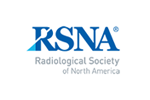Supplemental Breast Cancer Screening Based on Breast Density
Breast cancer is the most common cancer among US women except for nonmelanoma skin cancer.
Breast tissue density can range from nondense breasts that are mostly fatty to dense breasts that are fibrous and have more glandular tissue. Mammography is best used to find cancer in nondense breasts. Patients with dense breast tissue may need additional tests.
For women with an average risk for breast cancer (less than 15% lifetime risk) with nondense breasts, digital breast tomosynthesis (DBT) screening, also called 3-D mammography, is usually appropriate.
For women with an intermediate risk for breast cancer (15%-20% lifetime risk) with nondense breasts, DBT is usually appropriate, and MRI with and without intravenous (IV) contrast as well as abbreviated MRI with and without contrast (shorter MRI) may also be appropriate.
For women with a high risk for breast cancer (greater than 20% lifetime risk) with nondense breasts, DBT and MRI with and without IV contrast are usually appropriate. Mammography with contrast, whole-breast ultrasound, and abbreviated MRI with and without contrast may also be appropriate.
For women at average risk with dense breasts, DBT is usually appropriate. Mammography with contrast and MRI with and without contrast may be appropriate.
For women at intermediate risk with dense breasts, DBT is usually appropriate. Mammography with contrast, breast ultrasound, and MRI with and without contrast may be appropriate.
For women at high risk with dense breasts, DBT, breast ultrasound, and MRI with and without contrast (including abbreviated) are usually appropriate. Mammography with contrast may be appropriate.
For more information, please see the Breast Cancer Screening and Dense Breasts pages.
This page was reviewed on July 15, 2022



